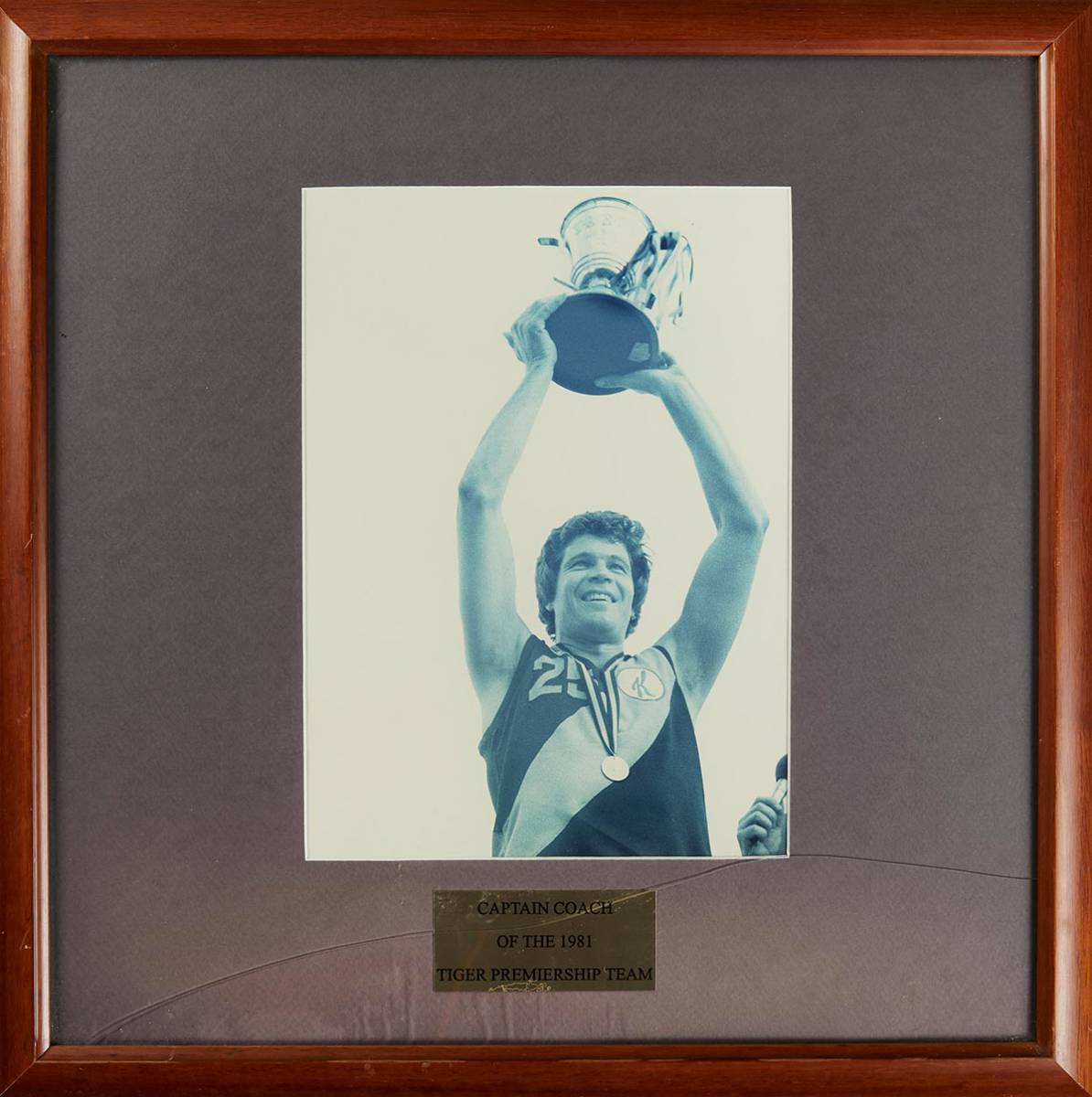
Full name Graham Frank Moss Born 14 May 1950
Height and weight Height: 196 cm Weight: 102 kg
Senior clubs Claremont & Essendon
Recruited from Claremont 1973 Essendon 1977
Hall of fame
Australian Football Hall of Fame (1996); Western Australian Football Hall Of Fame (2004) Legend
Claremont Career 1969 – 1972 & 1977 – 1983 Games 254 Goals 271
Essendon Career 1973 – 1976 84 games and 67 Goals
Graham Moss
Graham Moss made his Claremont debut in April 1969, a month before his 19th birthday. He lined up in a back pocket against West Perth, which was coached at the time by one of the greatest ruckmen in the history of the game, and a player Moss idolised, Graham ‘Polly’ Farmer. Over the ensuing decade and a half, Moss would carve out a reputation for himself that bore healthy comparison with that of his hero.
It was not long before Moss was moved from the back pocket onto the ball, and it immediately became clear that the Tigers had been blessed with a player of prodigious all round talent. A superb knock ruckman, he was equally impressive around the ground, both aerially, and in the packs. In 1970, he made the first of an eventual 23 interstate appearances for West Australia. Called into the team after the sandgropers had suffered an embarrassing defeat against Tasmania, he combined well with fellow ruckmen Graham Farmer and Bill Dempsey to help his state to a hard fought four-point win over South Australia at Subiaco Oval.
After helping Claremont reach the 1972 Grand Final, which resulted in a 15-point loss to East Perth, Moss joined the rapidly growing exodus of top West Australian players to Victoria when he signed for Essendon. His four-season stint with the Bombers, highlighted by a Brownlow Medal win in 1976, only served to confirm what football fans west of the Nullarbor already knew: that Graham Moss was one of the finest big men in the game. At the end of his Brownlow season, however, he felt that Essendon “did not seem to be going anywhere”¹ and accepted an offer from Claremont to return home as the club’s captain-coach.
Moss’s first couple of seasons as coach convinced him “that I could not continue a professional career and coach at the same time”.² Accordingly, he gave up his job as an engineer, went into real estate to supplement his income, and devoted himself full time to his coaching duties. Claremont’s fortunes promptly revived, and, after failing to qualify for the previous six finals series, the side participated in the next six, winning a premiership in 1981, and finishing runner-up in 1982 and 1983.
On the field, Moss continued to play as well as ever, winning Claremont’s fairest and best award in 1977-8-9-80, and continuing to represent West Australia with distinction. After 253 games for Claremont, Graham Moss announced his retirement at the end of the 1983 season, only to resurface, for one match only, two years later. He thus ended up with an overall tally of 338 club games, which includes 84 at Essendon, plus 28 interstate appearances, five of which were in a Big V jumper. Moss carried on as Claremont coach until the end of the 1986 season when he accepted the position of General Manager of the newly formed West Coast Eagles Football Club. After a couple of years in that role, however, he moved on to other challenges outside football.
Author – John Devaney

